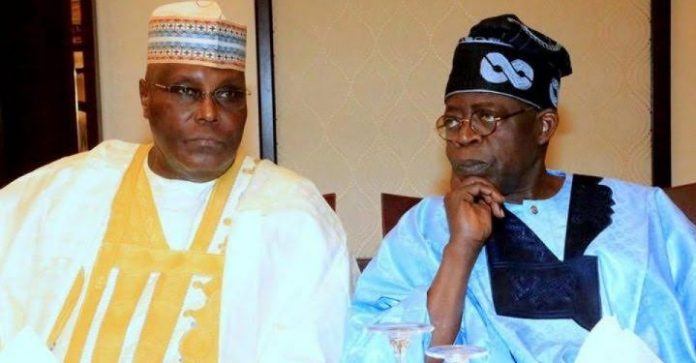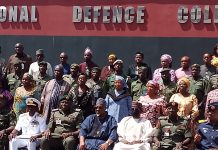A group, Socio-Economic Rights and Accountability Project (SERAP) has appealed to presidential candidates in the coming elections to urgently publish details of their assets and liabilities.
In an open letter to the candidates, it also urged them to publicly commit to rejecting vote-buying and electoral bribery before and during the elections.
“While there is no constitutional requirement for presidential candidates to publish their assets and liabilities before elections, doing so would show that you can stand up for transparency in assets declaration by public officers if elected,” the organisation said in the letter dated June 11 and signed by SERAP deputy director, Kolawole Oluwadare.
“The public office is a public trust. As such, the voters deserve to hear from presidential candidates regarding what they will do about issues of public interest, particularly with respect to integrity, selflessness, openness, accountability, human rights, and the rule of law if elected.
“As you and your parties prepare for presidential election campaigns, we hope that you will seize the opportunity to show your commitment to addressing these fundamental issues of public interest by immediately publishing details of your assets and rejecting vote-buying, intimidation, and harassment.
SERAP listed the candidates to include Atiku Abubakar of the Peoples Democratic Party (PDP), Bola Tinubu of the All Progressives Congress (APC), Peter Obi of the Labour Party (LP), Rabiu Kwankwaso of the New Nigeria Peoples Party (NNPP), and Peter Umeadi of the All Progressives Grand Alliance (APGA).
Others are Malik Ado-Ibrahim of the Young Progressive Party (YPP), Omoyele Sowore of the Africa Action Congress (AAC), Adewole Adebayo of the Social Democratic Party (SDP), Kola Abiola of the Peoples Redemption Party (PRP), Christopher Imumulen of the Accord Party (AP), Dumebi Kachikwu of the African Democratic Congress (ADC), and Yusuf Talle of the Allied Peoples Movement (APM).
The letter read, “Publicly committing to these issues will also show the voters that if elected you would act solely to protect the public interest; and avoid placing yourself under any obligation to people or organisations that might try inappropriately to influence you in the discharge of your constitutional duties.
“It would also show that you would be accountable to the public for your actions and submit yourself to the scrutiny necessary to ensure this
“Your public commitment to these issues will also demonstrate to the voters that if elected you would act and take decisions in an open and transparent manner and that you would not withhold information from the public unless there are clear and lawful reasons for so doing.
“Now is the time to show the voters that it will be no business as usual, and to make a public commitment on issues that if addressed would strengthen Nigeria’s anti-corruption and human rights records and improve access of Nigerians to public goods and services.
“SERAP also urges you to publicly commit to probing the spending of security votes since the return of democracy in 1999, and widely publishing details of spending of security votes; finding the missing N11 trillion meant to provide regular electricity supply for Nigerians; as well as obeying court orders and the rule of law if elected.
“Widely publishing your assets before the elections would also show your principled stand on transparency and accountability in the management of the country’s resources. Making asset declarations open would ensure that leaders do not abuse their powers for personal gain and allow civil society to hold leaders to account. If leaders are seen to live beyond their means, an asset declaration can be a starting point for investigations.
“The practice of vote-buying and electoral bribery by politicians have characterised elections in the country for many years, preventing political equality and fair electoral competition. Yet, nobody politic worthy of being called a democracy entrusts the selection of leaders to a process of auction or barter.
“Vote buying amounts to undue influence and improper electoral influence. When politicians buy votes, they reinforce social subjugation and do long-term damage to poor voters. Public officials rarely publish their asset declarations submitted to the Code of Conduct Bureau, contrary to the principles of transparency and accountability, and other international standards.
“Impunity for corruption and grave human rights violations is widely prevalent in Nigeria, as perpetrators are rarely brought to justice. Successive governments, including the government of President Muhammadu Buhari have persistently failed to obey court orders and the rule of law, thereby eroding the citizens’ trust in the judiciary, and violating Nigeria’s international human rights obligations.
“N11 trillion meant to provide regular electricity supply has been allegedly squandered by governments since 1999. Many unimplemented reports of corruption in the electricity sector continue to gather dust on the shelves while suspected perpetrators continue to profit from their crimes. Socially and economically vulnerable Nigerians continue to pay the price for corruption in the electricity sector.
“Successive governments and state governors have persistently failed to explain to Nigerians how they spend security votes meant to ensure the security and welfare of Nigerians. In fact, the misuse and embezzlement of public funds in the name of security votes are widely recognised as a major cause of the ongoing security challenges in several parts of the country.
“Please let us know if you and your political party are willing to commit to some or all of the issues outlined in this letter.”













